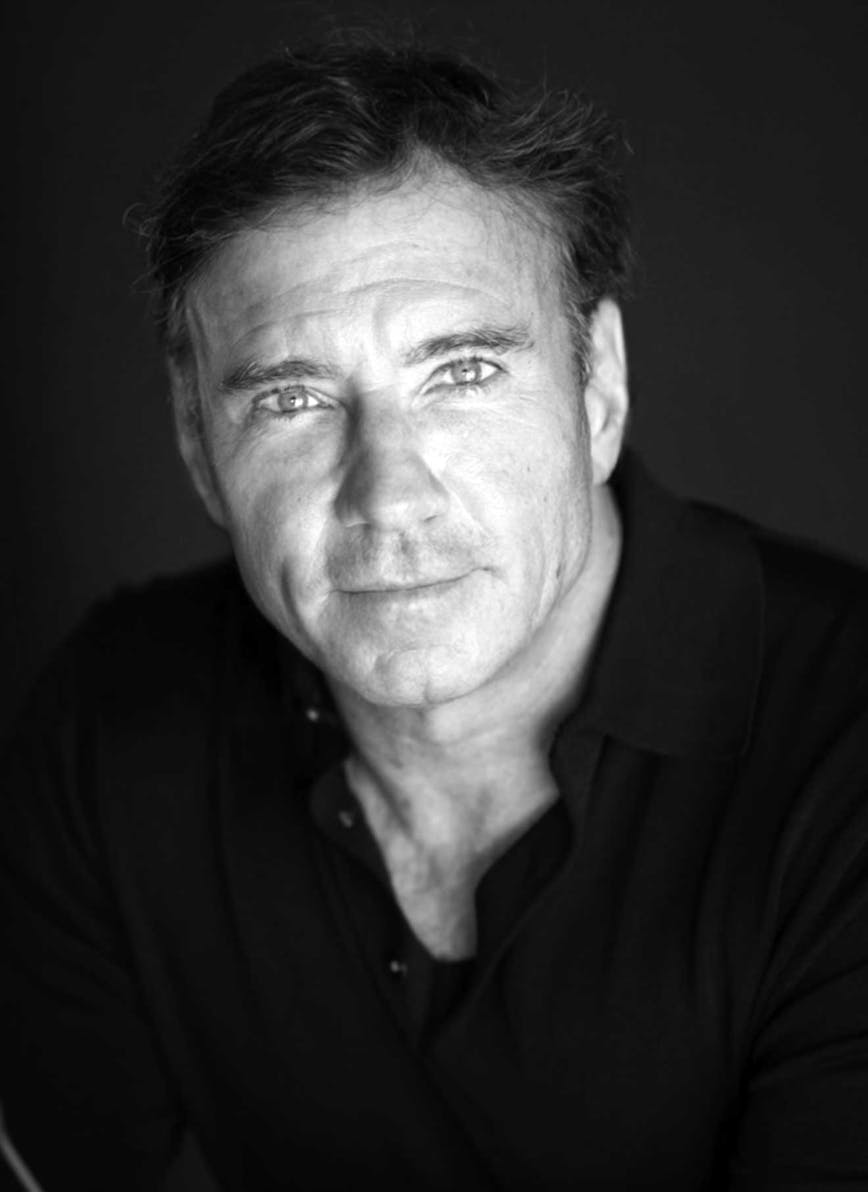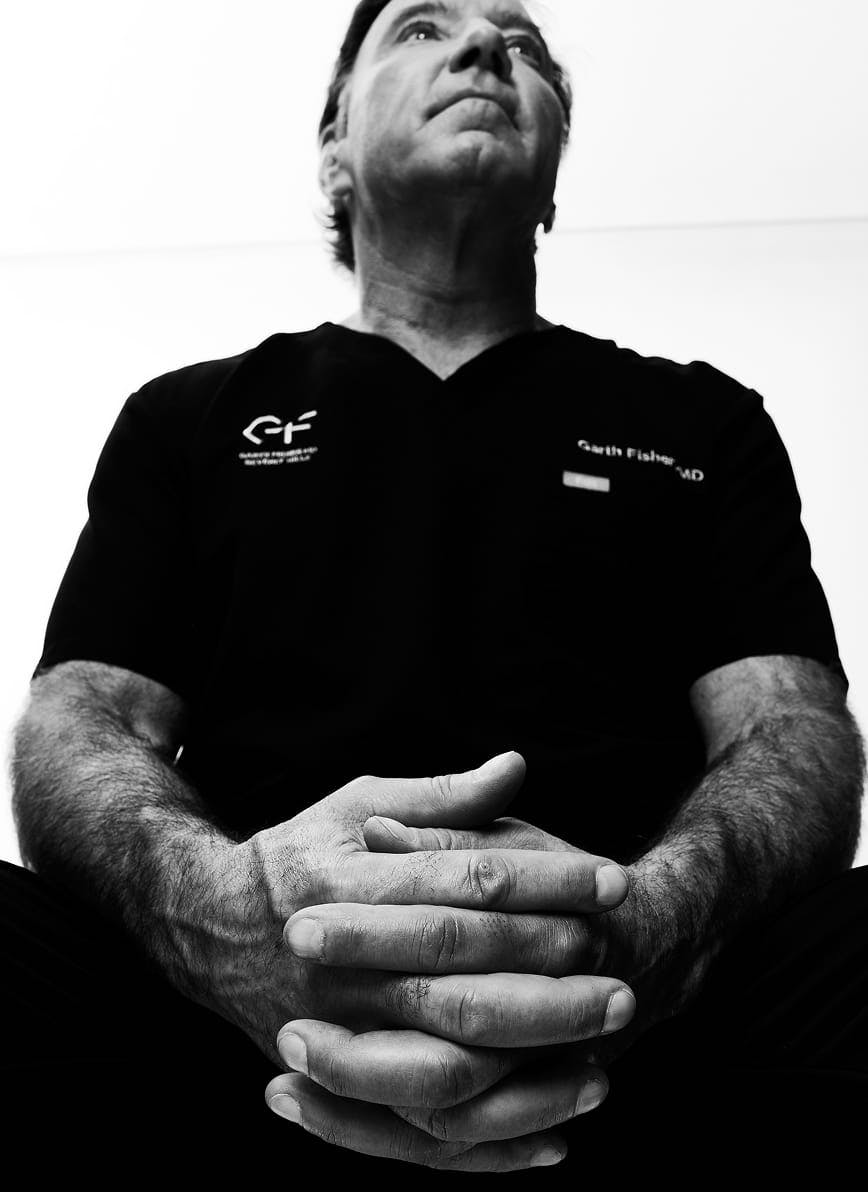In this rare and revealing conversation, Dr. Garth Fisher shares his philosophy on aesthetic integrity, patient selection, and the balance between artistry, science, and self-restraint in modern beauty.
Discipline, Discretion, and the Art Behind the World’s Most Watched Faces
We hear that you are the “go-to guy” for the “A” list celebrities… Who have you taken care of?
Confidentiality and respect for a patient’s privacy are the backbone of my business. I am not one of those plastic surgeons who advertise and list my celebrity patients. I try my best to protect them and am proud to say we have not had a celebrity surgery tabloid leak in 20 years! That is what I am proud of. We routinely see some of the most recognized people in the world. In their inner circles, I think their awareness of my office’s careful and respectful handling of these types of people has strengthened our relationships.
There is a recognized medical compulsion to keep tweaking one’s appearance. Michael Jackson was arguably the world’s best-known example of this. Do you ever turn patients away if you feel their expectations are unrealistic, or further plastic surgery would not enhance their appearance?
The intense desire to continually refine one’s appearance can lead to unrealistic expectations and unnecessary surgery. Because of my reputation amongst the celebrity and international community, I probably see more patients seeking corrective secondary or tertiary procedures than most surgeons. Not all these individuals have poor results, yet the world of plastic and cosmetic surgery has expanded along with the accelerated pace of twenty-four-hour media coverage, the internet, and other instant informational systems. I decline to perform surgery on approximately 40% of the consultations I see. The reasons vary; however, my goals are clear. I remain confident that the advice I provide avoids the potential for future complications and faulty expectations. My detailed self-selection process allows me to maintain consumer satisfaction and patient safety at an extremely high level. Though many patients are disappointed that the process excluded them, I firmly believe that using such a surgical preference process, based upon scientific and aesthetic criteria, saves much heartache.
You treat many famous people. Is there such a thing as a celebrity plastic surgeon? Are you one? Please, tell us a little about Garth Fisher, the man, and his interests.
I have an incredibly urbane, refined, and cultured celebrity international practice, perhaps the most extensive and far-reaching in the world. Although the opportunity exists to become self-absorbed in this “celebrity culture”, it is not a path I have chosen to explore. My satisfaction is derived from an evolved balance between my family and my time with patients. My children provide me with a sense of unparalleled value. Fortunately, that asset has translated into quality hours in the operatory. Within that balance, I find my own sustenance and joy, and therefore am able to provide unblemished devotion to both worlds.
Men and women today are confronted with a vast array of choices in terms of skin care. Some skin ranges, such as Obagi, for example, rely on a very specific concept of skin care regimen. Others, such as the Perricone range, have established themselves as a “lifestyle” choice and expand Dr. Perricone’s “philosophy” of daily living. Skin care products are a vast industry. Please articulate how CellCeuticals is different and what is different about it in concrete terms. Today’s consumer is well educated and keen to find out what actually goes into a skin care product and how it works.
Not every individual is a candidate for plastic surgery, and people are always surprised to hear that I turn away 40% of those who walk into my office because either they are not a candidate for procedures, have unrealistic expectations, or simply their skin is not in an optimal condition for procedures. Now, with the introduction of CellCeuticals® Biomedical Skin Treatments, I am able to offer a clinically effective skin treatment system for those who are not ready for plastic surgery.
CellCeuticals® Biomedical Skin Treatments is the culmination of more than 15 years of protein and DNA research. CellCeuticals’ patent-pending, bioengineered growth factor lipopeptides are developed and tested using state-of-the-art DNA Microarrays and represent the next generation of peptides. Many first-generation peptides used in other products increase the expression of genes that code for elastin and collagen proteins; however, they are contraindicated because they also increase the expression of genes that code for Matrix Metalloproteinases (MMPs), enzymes that break down the protein matrix of the skin.
The CellCeuticals® exclusive and patent-pending grown factor lipopeptides are targeted to increase expression of certain genes (elastin, collagen) and to decrease others such as MMPs and interleukins.
The CellCeuticals® Growth Factor Peptide (GFP) Cellular Complex is a groundbreaking technology combining next-generation growth factor lipopeptides, retinol, and antioxidants in a proprietary nanoemulsion delivery system that targets cellular skin aging. The GFP Cellular Complex was designed to facilitate a “proliferation response” and eliminate the “inflammatory response” common with other anti-aging ingredients and procedures.
Studies demonstrate that GFP Cellular Complex triggers cellular stimulation to encourage the regeneration of vital proteins responsible for firmer, thicker, and youthful-looking skin without irritating side effects.
Furthermore, the award-winning CellCeuticals® Skin Treatment System has been carefully formulated and undergone rigorous clinical testing to substantiate both product performance and safety.
Is there an artistic element in rejuvenating or enhancing a face? How important is the surgeon’s own perception of beauty?
Not all surgeons are created equal. Neither are highly skilled artisans. The combination and balance between proper surgical skill, judgment, and artistic creativity is often a fine line. Facial surgical results are readily apparent and reveal much about the practitioner’s surgical skill and perception of beauty. Like a fine canvas by Bruegel or Michelangelo’s David, the appreciation of form and balance relies heavily upon artistic creativity, which is inherently married to an appreciation of beauty.
Can you please name some of the most beautiful faces of all time, in your own opinion, existing or dead?
My wife (photo on the front of my website), Halle Berry, Audrey Hepburn, Megan Fox, Raquel Welch, and Catherine Deneuve.
Without your help, would some of the most recognized faces in the world still be recognizable?
I have encouraged some of the most recognizable faces in the world to NOT have surgery and to maintain the facial identity and characteristics that the world has learned to appreciate.
Few plastic surgeons take such a holistic approach. Do you see your role as a beauty guru (for lack of a better word), rather than just a surgeon?
My goals are clear. I serve my patients. I have been fortunate to have achieved an appreciation for beauty, structure, and form, which I have developed into an artistic surgical model. This paradigm has allowed me to sculpt and create physical splendor. This sense of exquisite magnificence only receives recognition because agreement exists among those who perceive such beauty. I am constantly aware that this gift must be used with caution, and thus, an accolade such as guru or sage, or guide to the gorgeous people of the world, is clearly a misnomer and a superfluous label.
The vast majority of people wish to enhance their appearance. Some are deterred by fear of surgery, others by financial imperatives. The rewards of plastic surgery often tip the scale, yet we are often shown images of people who are both successful and affluent and whose surgery has gone terribly wrong. Why is it that the people who have great resources often end up looking worse than the average patient?
Unsuccessful outcomes occur because consumers are not properly informed and educated. Often, they have unrealistic expectations, have chosen the wrong surgeon, or have embarked on a process of change or physical alteration for the wrong reasons. Usually, a deficit has occurred in the communication between the patient and the provider. That is truly an unfortunate consequence of the hurried desire for the “change me now” phenomenon. Plastic surgery can be a life-altering event, but the entire matrix of the individual is involved, and an astute and wise surgeon has come to appreciate that balance.


